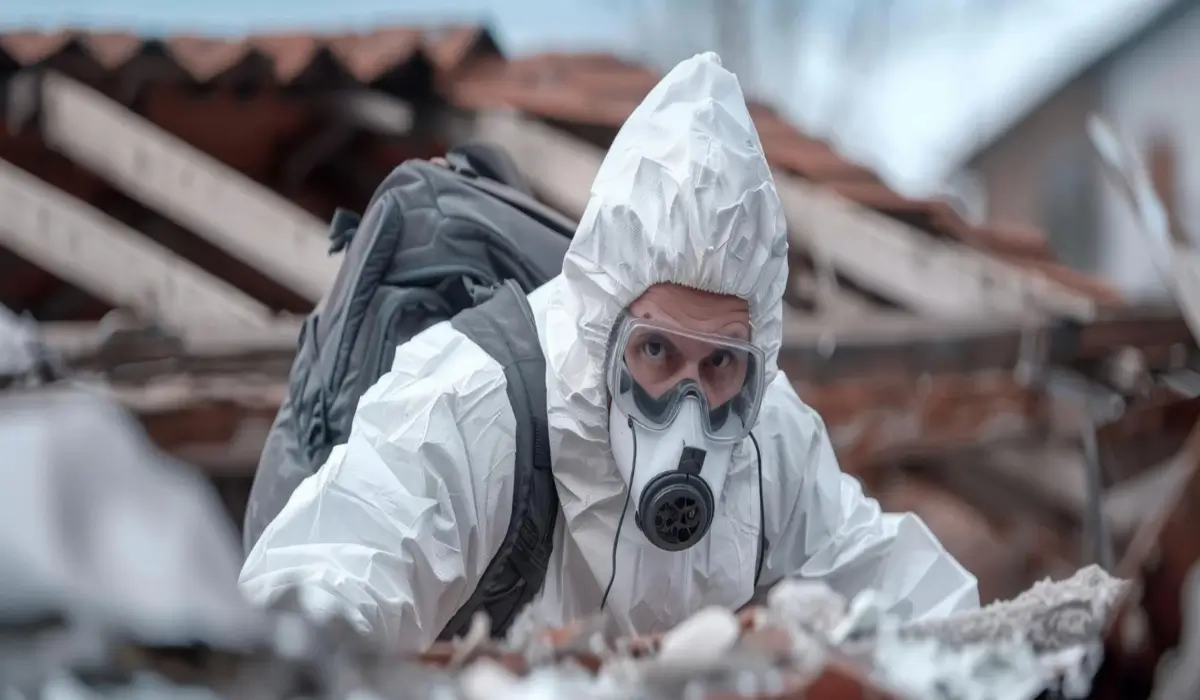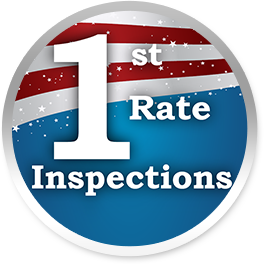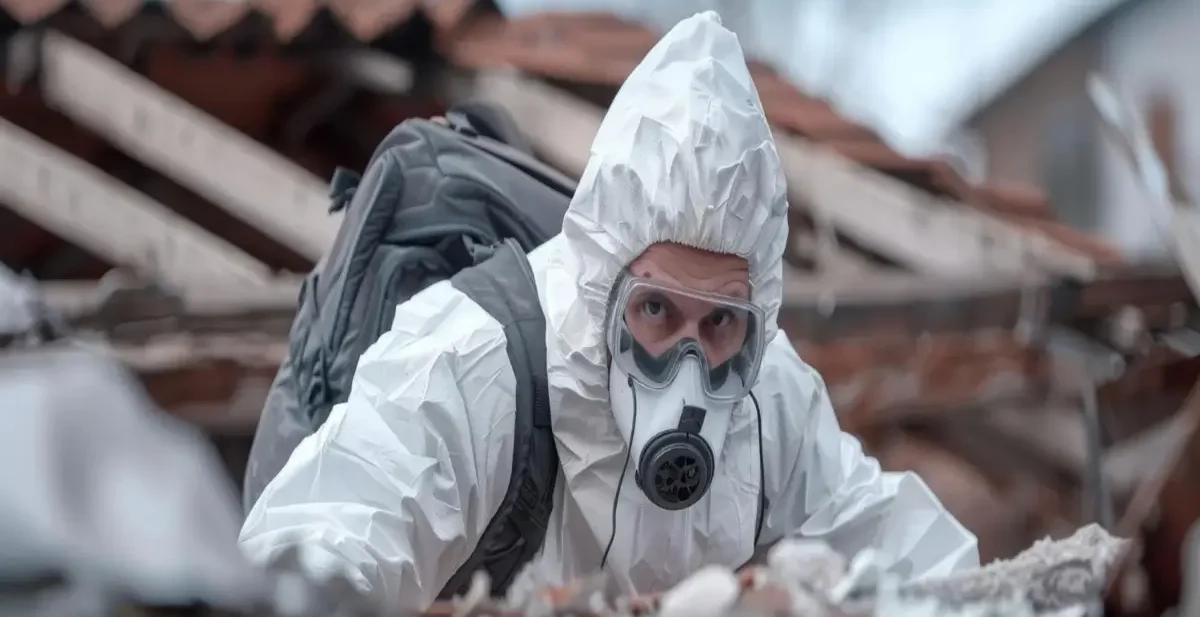
If you’re buying or renovating a house or simply concerned about keeping it safe for living, asbestos testing should be on your radar, more so if your home was built before the 1980s.
Asbestos was commonly used in buildings and is now associated with dangerous health issues. We’ve outlined everything you should know about testing for asbestos in a home in Houston and how it can safeguard your health.
What Is Asbestos And Why Should It Matter To You?
Asbestos is a naturally occurring silicate mineral that was once used extensively in insulation, flooring, roofing, and paints. It is fire-resistant and long-lasting, which ensured its widespread use in construction throughout the twentieth century.
However, when asbestos is processed, dispersed in the air as fibers, and inhaled, it is fatal to health. It can cause diseases such as lung cancer, asbestosis, and mesothelioma, among others. This is why asbestos testing is so important if you live in an old home.
How Do You Know If You Need Asbestos Testing?
If your home was constructed before the 1980s, asbestos was probably used. Common areas where asbestos can be found include:
- Insulation (particularly surrounding water pipes, attics, and walls).
- Flooring systems, vinyl tiles, adhesives, and carpets.
- Ceilings, including the popcorn ones, were exposed to asbestos.
- Roofing materials like shingles and roofing felt.
- Wall panels, particularly of old homes.
If you want to renovate or make improvements in your home, you should test for asbestos before disturbing any materials. Even if you’re not going to renovate, it’s still a good idea to see if your house contains asbestos, particularly if there are kids or elders in it.
What Is Involved In Asbestos Testing?
Asbestos testing typically involves a professional taking samples from different areas of the home where asbestos may be present. The samples are then sent to a certified laboratory for further analysis. Here’s what you can expect during the process:
Inspection and Assessment
A certified asbestos testing specialist will come to your home to inspect areas that might contain asbestos. They will consider the situation and decide if a sample of the materials needs to be taken. This step will assist in identifying risky areas within your home.
Sample Collection
If the inspector feels that there could be asbestos in some areas, they will professionally take a small amount of the material. These samples are collected in a manner that prevents the liberation of any fiber of asbestos into the atmosphere during sampling.
Lab Analysis
The collected samples are sent to a certified laboratory specializing in asbestos testing. The lab will examine the samples to see if they contain asbestos or how much of it exists. This aids in establishing possible health risks.
Results And Recommendations
After the analysis, you will receive an analytical report with all the results. If asbestos is identified, the report will indicate how to appropriately deal with or eliminate the material.
Performing Asbestos Health Hazard Evaluation
Asbestos exposure can lead to serious health issues over time, including:
- Lung Cancer: It has been proven that increasing exposure for a long time to asbestos can lead to lung cancer.
- Asbestosis: This is a long-standing respiratory illness caused by inhaling asbestos fibers.
- Mesothelioma: A type of lung cancer is quite rare but strongly associated with asbestos exposure.
These diseases slowly unfold, and the patient may not know they are infected for quite some time. Early detection of asbestos can save you and your family a great deal of undue exposure, probable health risks, and thousands of dollars.
When Should You Get Asbestos Testing?
While it’s recommended to do asbestos testing in older homes, there are specific situations where testing is especially important. Here’s when you should consider testing:
Before Starting Renovations Or Remodeling
If you want to renovate your house, disturbing old construction materials such as flooring, insulation, or walls may dissipate asbestos. To avoid this, asbestos testing becomes mandatory.
If You Have A Home Built Before The 1980s
Older homes contain asbestos, and a test should be conducted when purchasing or renting them.
If You Notice Damaged Materials
If you notice damage in insulation or tiles that may contain asbestos, hire an expert to detect asbestos levels.
How Much Does Asbestos Testing Cost In Houston?
The cost of asbestos testing can vary depending on the size of your home, the number of samples taken, and the job’s complexity.
Remember, peace of mind is a small price to pay when weighed against potential health implications and the costs associated with asbestos removal.
What If It’s Detected That Asbestos Is Present?
If asbestos testing reveals that your home contains dangerous levels of asbestos, it’s important to hire a certified asbestos removal contractor to handle the job. This is not a DIY job because it requires expert handling of a dangerous substance.
Professional asbestos removal services typically include:
- Restricting access to areas contaminated with asbestos.
- Employing specialized equipment to remove and dispose of the identified asbestos.
- It is also important to clean the area to eliminate fiber particles.
Although removal is expensive, it is a worthy investment in a home’s safety. If the contamination is severe, the cost can be high.
Choosing 1st Rate Inspections for Asbestos Testing
If you’re concerned about asbestos in your home in Houston, get professional asbestos testing as soon as possible. If you live in an old home, you must ensure that it doesn’t have dangerous levels of asbestos contamination.
At 1st Rate Inspections, we offer reliable, thorough, and affordable asbestos testing services to give you the peace of mind you deserve. Our certified inspectors can detect even the minimum risk of asbestos contamination while protecting your home.
Contact now to schedule your asbestos testing and protect your home and family from the dangers of asbestos.





